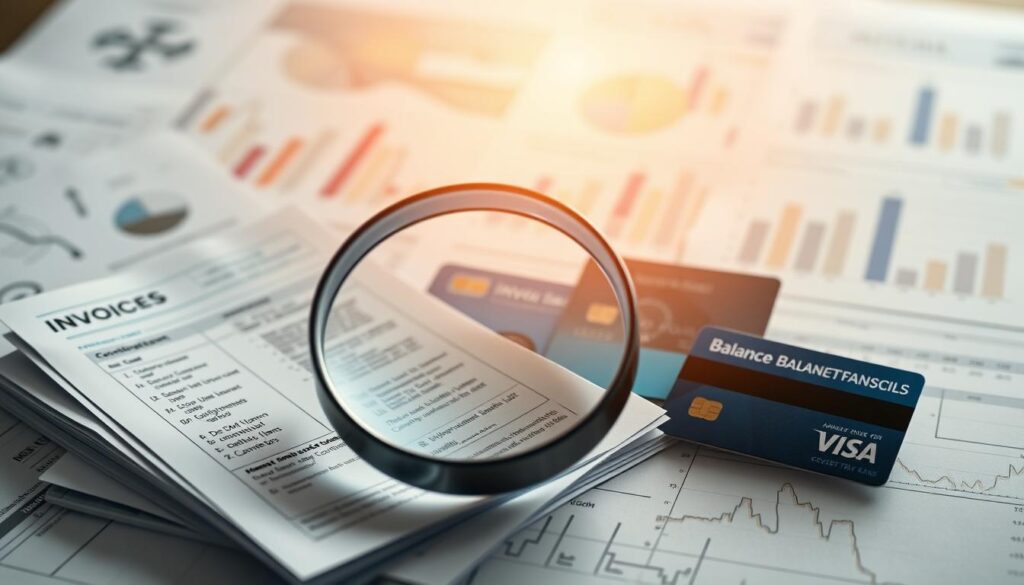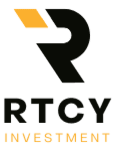Many people dream of financial freedom, and paying off debt is a big step towards it.
There are many debt repayment strategies to choose from. Pick the one that fits your financial situation best.
Using smart personal finance tips can help you manage your money well. This way, you can work towards being debt-free.
Knowing your options is crucial. It helps you make smart choices for your financial future.
Key Takeaways
- Understand the importance of creating a budget to manage your finances.
- Explore different debt repayment strategies to find what works best for you.
- Learn how to make extra payments to accelerate your debt repayment.
- Discover the benefits of debt consolidation in simplifying your finances.
- Implement effective personal finance tips to achieve financial freedom.
Understanding the Impact of Debt on Your Financial Health
Knowing how debt affects your finances is key to freedom. As of August 2023, American households owe over $17 trillion. The average household debt is just under $102,000. This shows how vital it is to manage debt well.
Debt takes many forms, and knowing them is crucial for debt management tips. Let’s look at some common debts Americans face.
Common Types of Debt Americans Face
Americans deal with many debts, like credit card, student loans, mortgages, and personal loans. Credit card debt is tough because of high-interest rates. For example, credit card rates can be from 15% to over 25%. It’s important to use smart money management to tackle this.
| Type of Debt | Average Balance | Interest Rate |
|---|---|---|
| Credit Card Debt | $4,200 | 15%-25% |
| Student Loans | $31,300 | 4%-12% |
| Mortgages | $120,000 | 3%-7% |
How Debt Affects Your Credit Score and Future Opportunities
Your debt levels greatly affect your credit score. A good credit score is key for future loans or credit. High debt can lower your score, making it tough to get loans. Good debt management tips can boost your score over time.
The Emotional and Psychological Toll of Carrying Debt
Debt can deeply affect your emotions and mind. It can cause stress, anxiety, depression, and lower your life quality. Quick debt reduction strategies can help reduce this stress and improve your well-being.
By understanding debt types and their effects, you can start towards financial freedom. Good debt management is not just about numbers. It’s about enhancing your life quality.
Assessing Your Current Financial Situation
To start your journey to debt-free living, you must first understand your current financial landscape. Assessing your financial situation is a critical step in determining the best course of action for debt elimination.
Creating a Complete Debt Inventory
Begin by making a comprehensive list of all your debts. This includes credit cards, personal loans, medical debt, and other financial obligations. Your list should have the balance, interest rate, minimum payment, and due date for each debt.
| Debt Type | Balance | Interest Rate | Minimum Payment | Due Date |
|---|---|---|---|---|
| Credit Card | $2,000 | 18% | $50 | 15th |
| Personal Loan | $10,000 | 6% | $200 | 1st |
| Medical Debt | $1,500 | 0% | $50 | 20th |
Calculating Your Debt-to-Income Ratio
Your debt-to-income ratio is a crucial metric. It shows how much of your income goes towards debt payments. To calculate it, divide your total monthly debt payments by your gross monthly income.
Formula: (Total Monthly Debt Payments / Gross Monthly Income) * 100
Identifying High-Interest Debts to Target First
Not all debts are created equal. High-interest debts, such as those from credit cards, should be prioritized.
Credit Card Debt Priority
Credit card debt often carries high interest rates. It’s a priority for repayment. Consider debt consolidation options like balance transfer credit cards or personal loans to reduce interest rates.
Personal Loans and Medical Debt
Personal loans and medical debt may have lower interest rates. But they still need to be addressed. Evaluate whether consolidating these debts could simplify your payments and potentially lower your interest rates.
By understanding your financial situation and prioritizing your debts, you can develop an effective plan to achieve debt-free living. This strategic approach will help you make progress towards financial freedom.
How to Pay Off Debt Using Proven Methods
Understanding your debt options is key to moving forward and reaching your financial goals. There are several effective ways to reduce your debt and manage your money better.
The Debt Snowball Method: Starting Small for Big Wins
The debt snowball method starts with the smallest debts first. You make minimum payments on the bigger ones. This method gives you a quick win as you clear smaller debts fast.
For example, if you owe $500 on a credit card and $10,000 on a student loan, start with the credit card first.
The Debt Avalanche Method: Minimizing Interest Payments
The debt avalanche method focuses on debts with the highest interest rates first. This way, you save money on interest over time. It takes discipline but can cut down your total debt.
The Debt Tsunami Method: Tackling Emotional Debt First
The debt tsunami method targets debts that stress you out the most. This includes personal loans or high-interest credit cards. Tackling these first can ease your financial stress and improve your mood.
Hybrid Approaches for Personalized Debt Reduction
Some people prefer a mix of methods for their unique situation. You might blend the debt snowball and avalanche methods. Or, you could prioritize based on interest rates, balances, and emotional impact.
| Debt Repayment Method | Description | Benefits |
|---|---|---|
| Debt Snowball | Pay off smallest debts first | Quick wins, psychological boost |
| Debt Avalanche | Pay off debts with highest interest rates first | Saves money on interest, efficient |
| Debt Tsunami | Tackle debts causing most emotional stress first | Reduces financial stress, improves well-being |
| Hybrid Approach | Combine different methods | Personalized, flexible |
By using these proven strategies, you can create a money management plan that works for you. This will help you achieve financial freedom.
Creating a Realistic Budget for Debt Repayment
Making a budget is key to paying off debt. It helps you see where your money goes and how to spend it wisely. This way, you can control your finances better.
The 50/30/20 rule is a good way to budget. It says spend 50% on needs like rent, 30% on wants, and 20% on saving and debt. This rule helps you manage money and pay off debt.
The 50/30/20 Budgeting Rule for Debt Elimination
Using the 50/30/20 rule can change your debt situation. It focuses on needs over wants and saves a lot for debt. This speeds up your path to being debt-free.
Tracking Expenses to Find Hidden Money
Tracking your spending is also important. It shows where you can save more for debt. Apps or spreadsheets make tracking easier.
Setting Up Automatic Payments to Stay Consistent
Automatic payments help you stay on track with debt. They ensure you never miss a payment. This method also reduces debt stress.
Using Cash Envelopes and Other Budgeting Systems
Cash envelopes are good for those who like hands-on budgeting. They help you stick to your budget and avoid overspending. Other systems, like zero-based budgeting, can also work for you.
As
“You can’t manage what you don’t measure.”
This quote highlights the need to track expenses for debt freedom.
With these budgeting tips, you can make a solid plan for debt repayment. This is a big step towards financial freedom.
Increasing Your Income to Accelerate Debt Payoff
Boosting your income is key to becoming debt-free. More money means more to pay off debt. This reduces the debt’s weight on your finances.
Side Hustles That Can Generate Extra Debt Payment Money
Side hustles are great for extra cash. You can try freelancing, ride-sharing, or selling online. These not only add to your income but also spread out your earnings.
Asking for a Raise or Promotion at Your Current Job
Asking for a raise or promotion can really help your income. Make a solid case for why you deserve more. Show your employer how valuable you are.
Selling Unused Items to Make Lump Sum Payments
Selling things you don’t need can give you a big chunk of money for debt. Use online sites or garage sales to make cash from unwanted items.
Monetizing Skills and Hobbies for Debt Reduction
Using your skills or hobbies to earn money is rewarding and smart. You could teach classes, make digital products, or offer services based on your expertise.
| Income Boosting Strategy | Potential Earnings | Effort Required |
|---|---|---|
| Freelancing | $500-$1000/month | High |
| Selling Unused Items | $200-$500 | Low |
| Teaching Classes | $300-$800/month | Medium |
These strategies can help you earn more and get closer to debt-free living. Every extra dollar you make means one less dollar in debt.
Debt Consolidation and Refinancing Options

Managing many debts can feel like a big burden. Debt consolidation helps make things simpler. It can lower your interest rates and make it easier to get out of debt.
When Debt Consolidation Makes Financial Sense
Debt consolidation is great for those with high-interest debts. It cuts down on the number of payments you have to make each month. Think about your income, expenses, and total debt to see if it’s right for you.
Balance Transfer Credit Cards: Pros and Cons
Balance transfer credit cards are useful for high-interest credit card balances. They often have a 0% introductory APR. But, watch out for fees and the regular APR after the intro period.
Personal Loans for Debt Consolidation
Personal loans are another good choice for consolidating debt. They have fixed rates and repayment terms, making budgeting easier. Lenders look at your credit score, income, and debt-to-income ratio to approve you.
Home Equity Options for Major Debt Restructuring
Homeowners can use home equity for debt consolidation. Home equity loans and lines of credit (HELOCs) often have lower rates. But, remember, your home is collateral, so there’s a risk of losing it if you can’t repay the loan.
Student Loan Consolidation and Forgiveness Programs
Students and graduates with federal student loans can consolidate them. This simplifies payments and may offer income-driven plans or forgiveness. It’s key to understand the terms and how they might affect any existing benefits or forgiveness.
Exploring your debt consolidation options and picking the best one can help you tackle debt. It’s a big step towards better financial health.
Negotiating with Creditors to Reduce What You Owe
Consider talking to your creditors to get better terms. This can lead to lower interest rates, smaller balances, or easier payment plans. It’s a way to make paying off debt less stressful.
Approaching Creditors for Better Terms
Before you talk to creditors, get your financial info ready. This includes your income, expenses, and debts. This information will help you make a strong case for better terms.
Be open about your financial situation. Show that you’re serious about paying off your debt.
Some good strategies for negotiating include:
- Ask for a lower interest rate to save on interest over time.
- Propose a settlement that’s less than what you owe.
- Request a temporary payment break if you’re going through tough times.
Debt Settlement vs. Debt Management Plans
Debt settlement means paying less than what you owe upfront. It can be quick but might hurt your credit score. Debt management plans (DMPs), on the other hand, are repayment plans with a credit counselor’s help. They can make payments easier and might get you better terms from creditors.
When to Consider Credit Counseling Services
If managing your debt feels overwhelming, think about credit counseling. These services can help with budgeting and finding a debt-free plan. They might also offer DMPs or other solutions for you.
Understanding Bankruptcy as a Last Resort
Bankruptcy should be a last choice because it can harm your credit and future. But for some, it’s the only way to start fresh. Always talk to a bankruptcy lawyer to understand what it means and if it’s right for you.
Knowing your options and taking action can help you manage your debt. This way, you can work towards financial freedom.
Maintaining Momentum and Avoiding Debt Relapse

The key to paying off debt is keeping up the pace and avoiding financial problems. You’ve worked hard to get this far. Now, it’s important to keep moving forward and build good financial habits.
Creating an Emergency Fund While Paying Off Debt
Creating an emergency fund is a smart move. It helps you avoid more debt when unexpected costs come up. Try to save $1,000 or three to six months’ worth of expenses for emergencies.
Identifying and Changing Habits That Lead to Debt
To avoid falling back into debt, you need to change your spending habits. Look at how you spend money and make better choices. Using personal finance tips like budgeting and tracking expenses can really help.
Celebrating Milestones in Your Debt-Free Journey
Celebrating your progress is a great way to stay motivated. Paying off a big chunk of debt or reaching a savings goal is something to celebrate. It boosts your mood and keeps you going.
Building Healthy Financial Habits for Long-Term Success
Developing healthy financial habits is key for long-term success. Keep budgeting, saving, and making smart investments. These habits will not only clear your debt but also secure your financial future.
Stick to these strategies and keep your focus on becoming debt-free. You’ll be on your way to debt-free living and the peace of mind that comes with it.
Conclusion: Your Path to Financial Freedom
Getting to financial freedom means using smart ways to pay off debt and manage money well. First, understand how debt affects your finances. Then, make a plan to tackle your debt.
You’ve learned about the debt snowball and avalanche methods. Also, budgeting, earning more, and looking into debt consolidation can speed up your debt repayment. These steps can help you get out of debt faster.
To keep moving forward, it’s key to develop good financial habits. This includes tracking your spending, setting up automatic payments, and saving for emergencies. By sticking to your goals and making wise financial choices, you can reach financial freedom. This will lead to a more stable financial future.
Now that you know how to tackle debt, it’s time to take charge of your finances. Start working towards a brighter financial future with smart money management.

